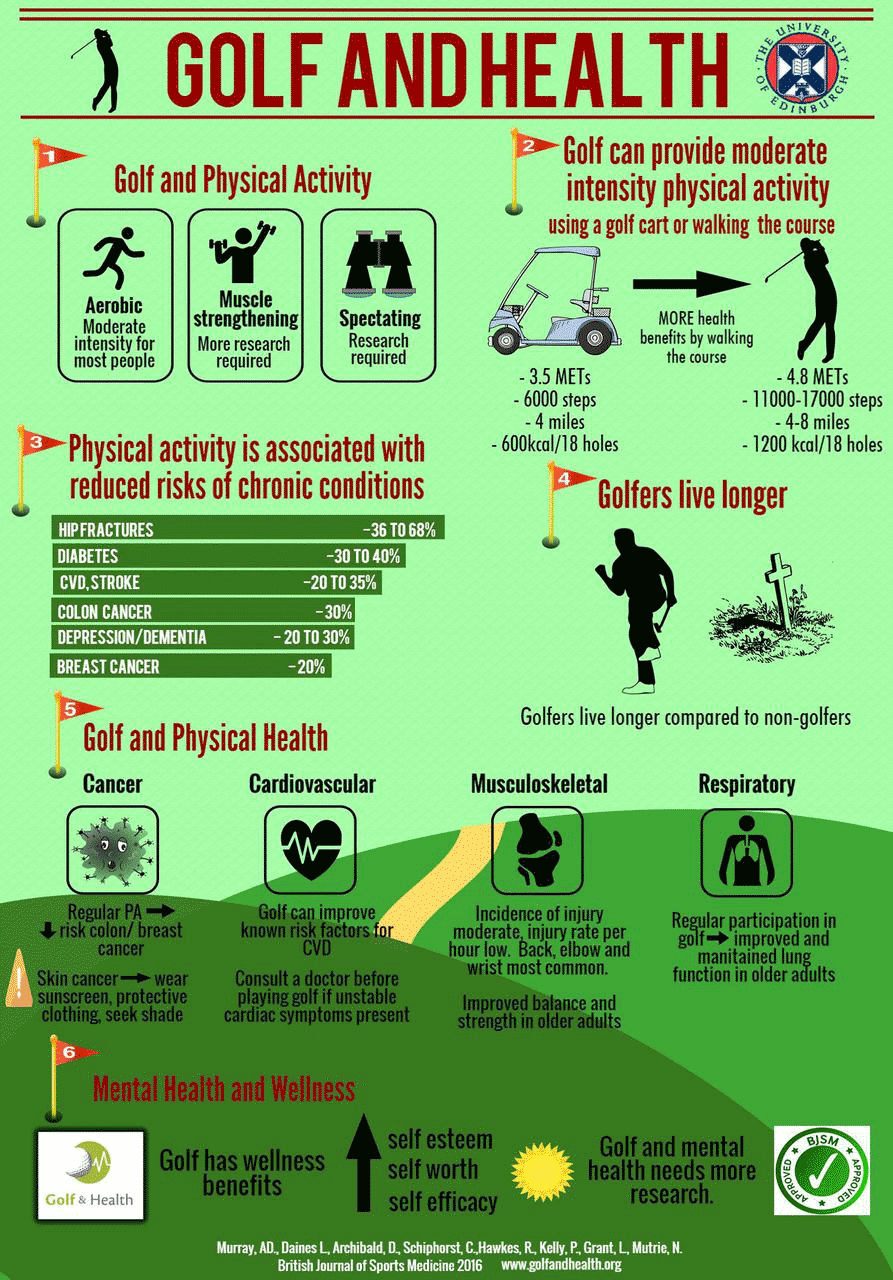
Regular Participation In Golf Can Contribute To An Overall Improvement In Your Health And Quality Of Life
A recent scientific publication in the January 2017 issue of the British Journal of Sports Medicine entitled “The Relationships Between Golf And Health: A Scoping Review“, by A.D. Murray et al from the University of Edinburgh, concluded:
“Golf can provide moderate intensity physical activity and is associated with physical health benefits that include improved cardiovascular, respiratory and metabolic profiles, and improved wellness.”
“Practitioners and policymakers can be encouraged to support more people to play golf, due to associated improved physical health and mental well-being, and a potential contribution to increased life expectancy.”
The research, which was first made available in September of 2016, was based upon a systematic review of over 4,900 publications that, on first pass, appeared to be related to evaluating the association between playing golf and health status. A subsequent, multi-step, review of these sources ended up distilling these publications down to 301 that met relatively strict criteria. These eliminated any sources that were purely opinion pieces, utilized questionable methods, were magazine/newspaper articles, did not provide objective data or were not directly related to golf and general health/well being (e.g. discussed golf mechanics, performance improvement, etc.). The resultant publications utilized covered 24 countries (54% were from the U.S.), were published in 9 languages and most are from 1990 and later.
While the research raised the notion of potential injuries, most due to repetitive use like low back injuries, the findings were highly supportive of the association between regular participation in the game and improved physical and mental health status.
A round of 18 holes of golf can burn around 600 calories (about 6,000 steps or almost 4 miles) if using a riding cart and around 1,200 calories (between 11,000 and 17,000 steps or between 4 and 8 miles) if walking.
Regular participation was associated with a reduction in the risks of multiple adverse health conditions (e.g. hip fractures, diabetes, stroke, certain cancers and depression) as compared to non-golfers, as well as the potential for increasing life expectancy as a result.
The authors acknowledge that more research is needed to better describe and quantify these associations, especially for mental health benefits. There is, of course, the potential that other lifestyle factors associated with golfers may also be relevant and so a true cause and effect relationship is not confirmed by this research.
However, as noted above, their firm conclusion is that encouraging greater participation in the game is warranted, that golf provides for a moderate intensity level of recreational exercise and is an activity that can easily be sustained throughout one’s life.
The World Golf Foundation has launched the Golf & Health Project and has provided additional online resources pertaining to advocating the association between golf and health benefits.
At Walt Disney World® Golf, operated by Arnold Palmer Golf Management, we look forward to welcoming you to the “Happiest Place on TURF”, where you can enjoy our great facilities, staff and services to take regular advantage the benefits of the game!







